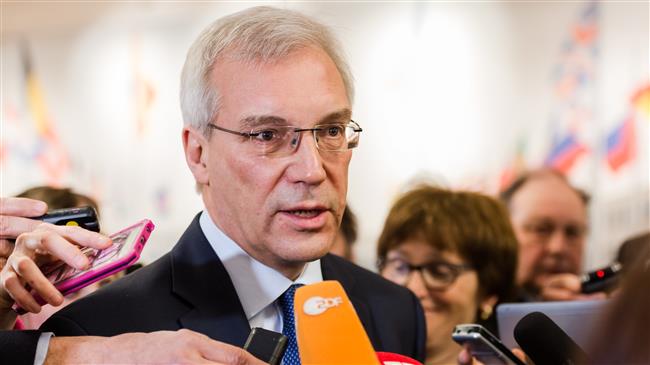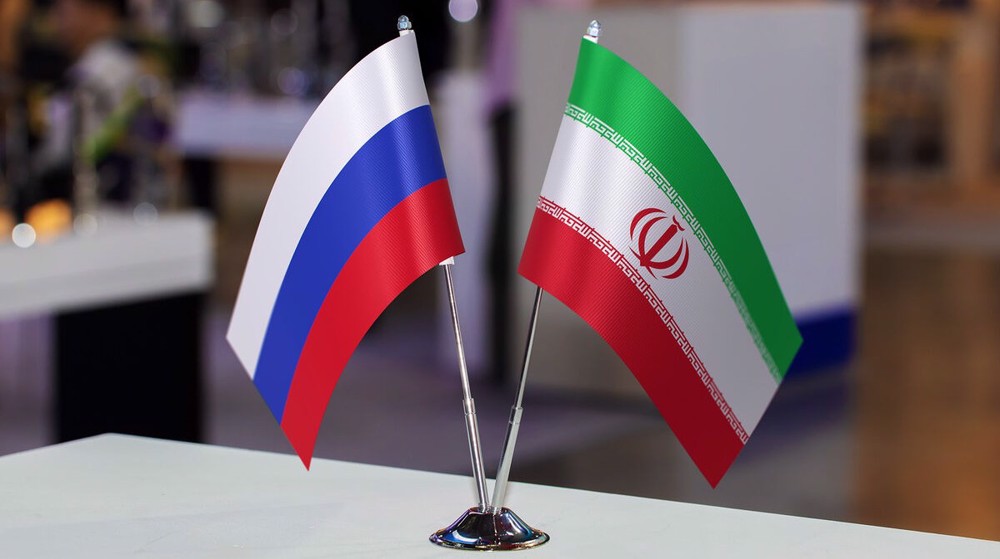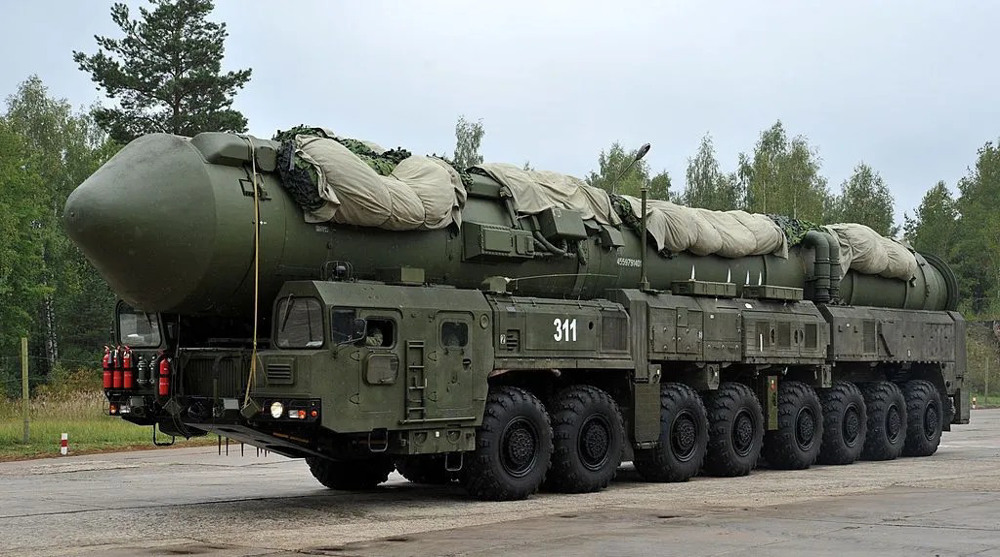Russia warns NATO against expanding presence in Black Sea
Russia has warned the US-led NATO alliance over a recent decision to beef up military presence in the Black Sea, saying such a move would further increase tensions in the volatile region.
Russian Deputy Foreign Minister Alexander Grushko said on Friday that the decision by the Western military alliance to strengthen its position in the sea “is not a surprise” for Moscow.
“We are talking about the strengthening of military and maritime forces of NATO member states, first and foremost, Romania and Bulgaria, plus non-coastal states entering the Black Sea more often,” he said.
"It is our understanding that this activity aggravates the situation in the sphere of security,” Grushko added.
The Russian diplomat made the remarks in response to NATO Secretary General Jens Stoltenberg, who said on Thursday that the alliance was considering an expansion of its presence in the region in an effort to support Ukraine. He also said that the military alliance is prepared to carry out war games in the region in a few days.
#NATO WARNING: Europe to prepare for ARMS RACE as NATO issues #Russia ultimatum https://t.co/JB66kQOq7V pic.twitter.com/YQz82wa0FW
— Daily Express (@Daily_Express) February 13, 2019
“NATO allies have of course clearly stated that Russia's aggressive actions against Ukraine are unacceptable,” said the NATO chief. "We are looking into whether we can increase our presence in the Black Sea and in the near future, in a few days, we'll have NATO ships in the Black Sea, participating in an exercise."
“So we have significantly increased our presence at sea but also in the air and on land in the Black Sea region,” Stoltenberg added.
Stoltenberg further said he would discuss “what steps NATO should take to adapt to a world with more Russian missiles” as he prepared to hold a meeting with European defense ministers.
Russian President Vladimir Putin authorized his ministers last month to start working on a new land-based cruise missile and a new land-based hypersonic missile before 2021 after the US suspended obligations under the Intermediate-Range Nuclear Forces Treaty (INF).
Washington said earlier this month that it would suspend the deal for 180 days and fully withdraw from it later if Moscow did not stop what he called “violations.”
Russia has rejected the accusations and demanded that Washington destroy its weapons banned under the treaty and “return to strict compliance” with the deal.
NATO statements on Russia deterrence absurd in context of US exit from INF — diplomathttps://t.co/HurjuFIC4q
— NozNewz Com (@NozNewz_com) February 15, 2019
© AP Photo/Susan Walsh pic.twitter.com/cp2KxI8hF0
The INF was signed in 1987 to ease a crisis in which US and Soviet missiles were placed within the range of European capitals.
Under the treaty, both sides were banned from creating ground-launch nuclear missiles with ranges from 500 kilometers to 5,500 kilometers and led to the elimination of nearly 2,700 short- and medium-range missiles.
The NATO chief, who once again raised concern about the fate of the treaty, said Russian Foreign Minister Sergei Lavrov gave him no indication that Russia might be willing to back down over missile activities, which has concerned Europe.
“There were no new signals from the Russian side," Stoltenberg said after he met with Lavrov at the Munich Security Conference on Friday.
China’s growing missile activity has also become a source of concern for the EU. China, which is not a signatory to the INF, was earlier urged by the NATO chief to join an expanded version of the agreement.
Stoltenberg said late last year that the alliance would support expanding the treaty if Beijing “is also bound by it.”
He said that “half of their missiles would violate the INF treaty if China were a signatory.”
US officials had also said that the major reason behind Trump’s decision to pull out from the INF was China’s growing missile program.
‘Unity against China’s growing influence’
China’s increasing investment in critical infrastructure systems around the globe, according to Stoltenberg, has also become another source of concern for the West.
“We have to better understand the size and scale of China's influence, what it means for our security, and we have to address it together,” he said at a meeting of world leaders, top diplomats and defense officials on Friday.
The European Union is under increasing pressure by the administration of US President Donald Trump to scrap Chinese telecommunication giant Huawei Technologies, from their telecom infrastructure plans.
The US has accused China of using the firm for international espionage, a charge China has strongly denied.
The EU is now facing a dilemma over Huawei as some of the member states are mulling to single out Huawei from a list of their suppliers, but many others are still receptive of the firm’s technology.
VIDEO | Sydney protests demand action as Israel faces ICC warrant for war crimes
Iran to host ‘important’ ECO foreign ministers' meeting in Mashhad
Wounded in Israeli strike, health of Kamal Adwan Hospital's director worsens
VIDEO | Press TV's News Headlines
Iran reports 11% drop in domestic red meat supply
Arab League affirms support for Iraq amid Israel's threats of military action
VIDEO | Fierce fight in Southern Lebanon
Over 1000 medics killed in Gaza as Israel systematically targets hospitals
















 This makes it easy to access the Press TV website
This makes it easy to access the Press TV website